Ahead of this summer’s Olympics, a Vermonter prepares to defy the odds one more time
| Published: 04-25-2024 4:35 PM |
His life is spare, almost monastic in its simplicity. Rowing on the water in the mornings. Working the rowing machine on land in the afternoons.
Two weeks ago, lifelong Norwich resident Billy Bender fulfilled his dream — he qualified for this summer’s Olympics — but success has not intruded upon his discipline.
The 22-year-old is already in Oakland, Calif., at the California Rowing Club, training with a singular focus: Vaires-sur-Marne in Paris on July 28, the first event in the men’s rowing pairs race.
“As soon as you start to get good at rowing, it’s a thought — maybe I could go to the Olympics,” Bender said in a recent interview.
It was a dream that for a long time seemed wildly out of reach. Upon graduating from Hanover High School in 2019, Bender had no offers to row at an elite college in the NCAA’s top division.
“I was good for a high school rower, but not good enough for D-I.”
Unwilling to quit, Bender made the short walk to Dartmouth College to speak to the heavyweight rowing coach, Wyatt Allen. There was something about Bender’s determination that caught Allen’s eye.
“I mean, I’ve never had a recruit just show up at my office,” said Allen. “He kept reinforcing how much he wanted to be here.”
Article continues after...
Yesterday's Most Read Articles
 Head-on crash in Hartland leaves one dead
Head-on crash in Hartland leaves one dead
 Newport property maintenance firm closes amid embezzlement allegations
Newport property maintenance firm closes amid embezzlement allegations
 With neo-Nazi rally in Concord, extremism and hate are on the rise in New Hampshire
With neo-Nazi rally in Concord, extremism and hate are on the rise in New Hampshire
 A Life: Marie Doyle ‘was just so kind all the time’
A Life: Marie Doyle ‘was just so kind all the time’
Bender’s score on the ergometer — a rowing machine exercise that measures how long it takes to row 2,000 meters — stood at 6 minutes, 30 seconds. He needed to shave 10 seconds from that time to meet the Dartmouth cutoff.
Allen suggested he take a gap year to improve and connected him with the famous Thames Rowing Club in London. After arriving in England, Bender tripled the number of hours he trained every week.
“That sucked. The winter was pretty miserable, just 35 (degrees) and rainy, doing all the training,” said Bender.
And just as spring arrived with its promise of fair-weather races, COVID-19 hit. Before he knew it, Bender was on a plane home.
By then, he had cut six seconds from his ergometer score. Based on the strength of his character, Allen decided to take a chance on him.
“Because I’m a local, had good academics, they could recruit a slower kid,” said Bender.
Except Bender was not slow. Against the odds, he became a star on the Dartmouth team, which medaled at the Intercollegiate Rowing Association National Championship for the first time since 1992.
“I think he’s underselling how much he developed that year,” said Allen. “Right off the bat, he was one of the fastest guys.”
But attention from the U.S. men’s senior rowing team remained elusive. The last two summers, Bender tried to get on the team’s eight-person boat without success.
At a training camp, he hopped into a pair boat with Oliver Bub, a Dartmouth alum. The duo realized they worked well together.
“It’s the ultimate team sport. It is not possible to be successful by yourself,” said Bender.
In the pairs, each rower holds only one oar. On their boat, Bender rows port (the left-hand side), while Bub rows starboard. The event demands a minutely coordinated precision, from placing the same amount of force in the stroke to extracting the blade simultaneously.
“It’s a level of trust, of intimacy even, that you don’t get in any other sport,” said Bender.
At the World Championships in Serbia last September, Bender and another partner, Evan Olson, placed fifth, qualifying Team USA for the pair boat class at this summer’s Olympics.
And at the U.S. Olympic trials in Sarasota, Fla., in early April, Bender and Bub beat out the next-best finishers by over three seconds to earn the right to represent the Americans in Paris.
“The publicity, gear, the Olympic village, they’re all distractions,” said Bender. “The goal is to stay focused on racing.”
Bender knows better than most about the sacrifices necessary to be an elite athlete. He also knows that, after college, rowing does not put food on the table.
So why does he do it? Why, in the many times he was not fast enough, or overlooked, did he not just give up?
Bender quoted Socrates: “It is a shame for a man to grow old without seeing the beauty and strength of which his body is capable.”
He paused and mused on what those words meant to him: “To know that you put all of yourself into something is special.”

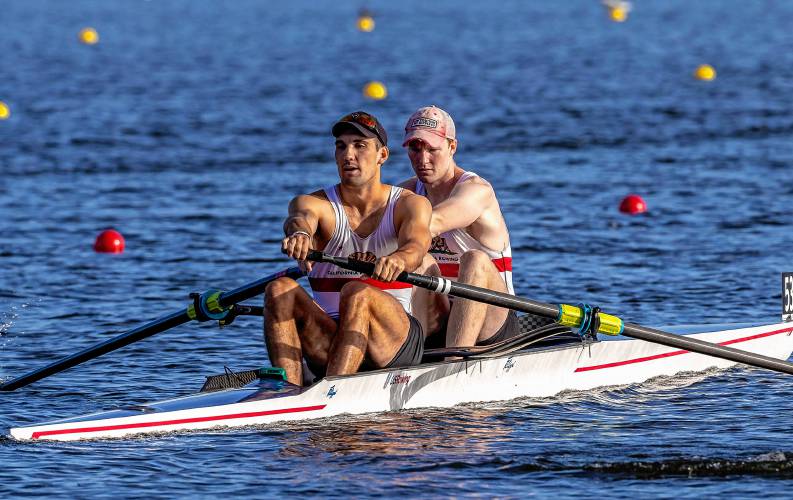
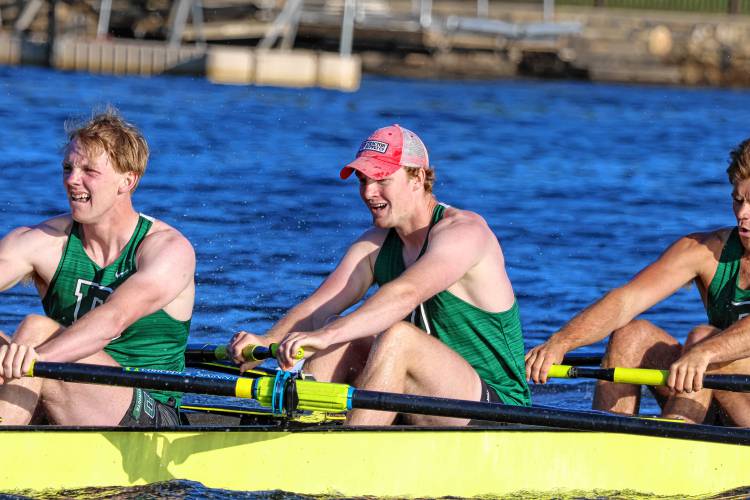
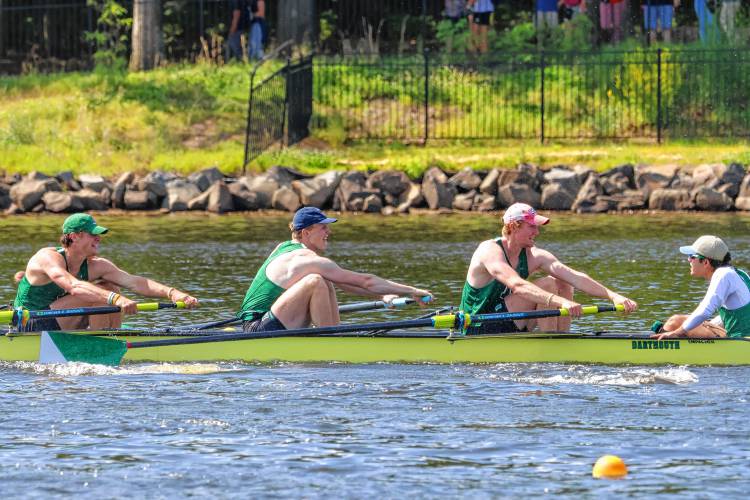
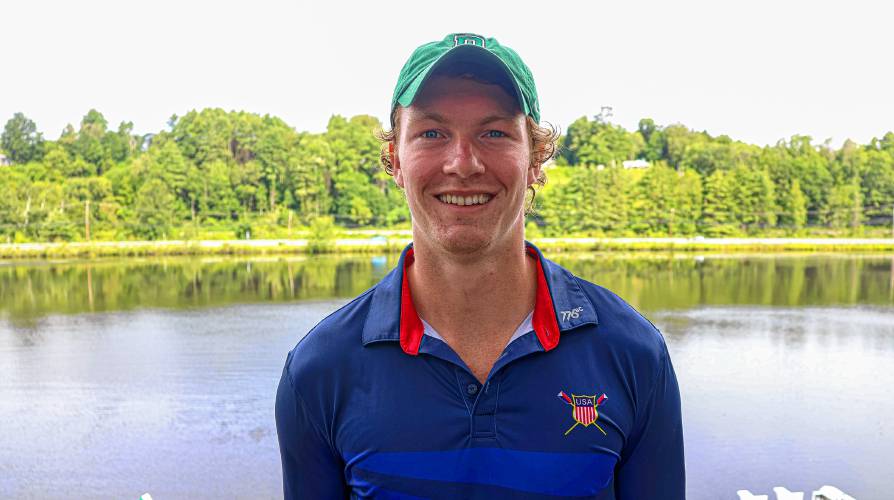
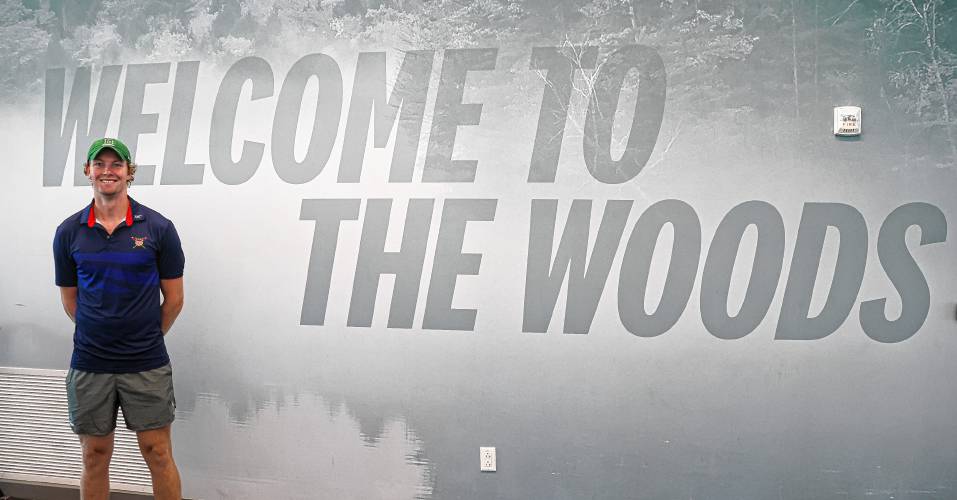
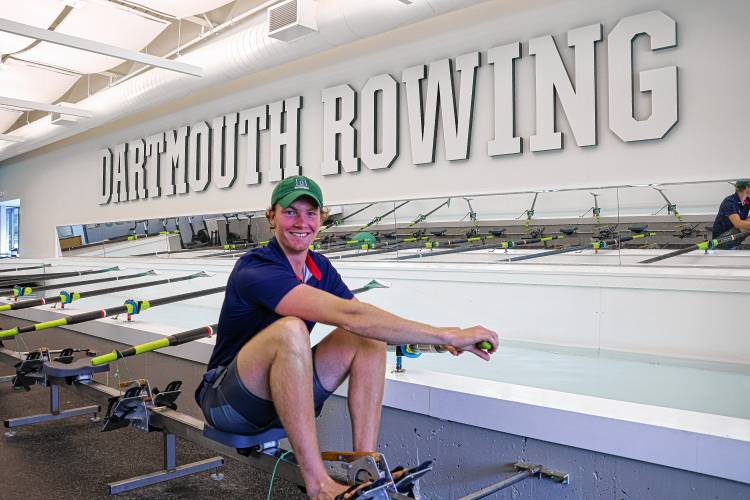
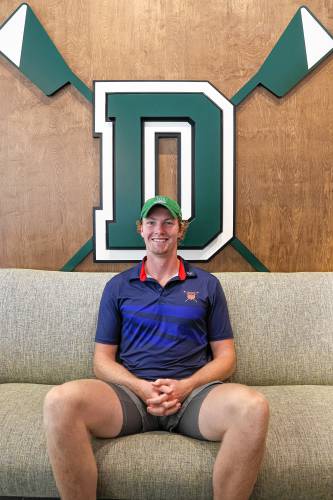
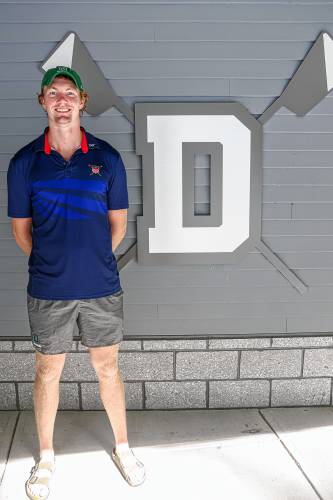





 Test shows elevated level of E. coli at Canaan Street Lake beach
Test shows elevated level of E. coli at Canaan Street Lake beach Rugby club in Upper Valley unites diverse group through sport and camaraderie
Rugby club in Upper Valley unites diverse group through sport and camaraderie Concord City Council votes to buy rail corridor with a ”heavy heart,’ threatening local rail bike business
Concord City Council votes to buy rail corridor with a ”heavy heart,’ threatening local rail bike business Hiking: Plainfield native conquers Long Trail in record time
Hiking: Plainfield native conquers Long Trail in record time
